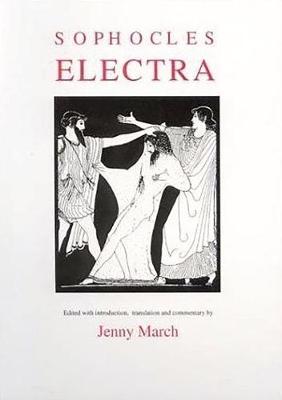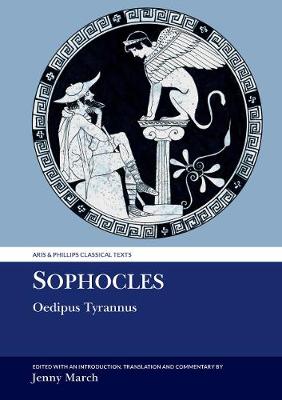Aris & Phillips Classical Texts
2 total works
King Agamemnon is long dead and his murderers rule at Argos. His son Orestes returns from exile to kill themuhis own mother Clytemnestra and her seducer Aegisthus. Thus he will release his sister Electra from oppression and reclaim his home and kingdom.
This is the only episode from Greek legend treated in surviving plays by all three of the great Athenian tragedians of the fifth century B.C.uAeschylus in his Libation-bearers (part of the Oresteia trilogy), Sophocles and Euripides each in plays called Electra. Together these plays give us a unique opportunity to compare and contrast the very different treatments by the three playwrights of a central Greek legend. In SophoclesAE hands the focus of the play is on Electra herself: her endurance and loyalty to the dead Agamemnon while oppressed and persecuted by Clytemnestra and Aegistus; her intense grief when she believes Orestes dead; her equally intense joy when she discovers him actually at her side; her final deliverance through his triumphant execution of vengeance on the murderers.
But is there more to the play than this story of triumphant revenge and restorations? The introduction of this book includes a survey of the main interpretative issues, as well as a summary of other treatments of the myth and a discussion of the problematic question of dating. The commentary, which is based on the translation, elucidates the action.
This is the only episode from Greek legend treated in surviving plays by all three of the great Athenian tragedians of the fifth century B.C.uAeschylus in his Libation-bearers (part of the Oresteia trilogy), Sophocles and Euripides each in plays called Electra. Together these plays give us a unique opportunity to compare and contrast the very different treatments by the three playwrights of a central Greek legend. In SophoclesAE hands the focus of the play is on Electra herself: her endurance and loyalty to the dead Agamemnon while oppressed and persecuted by Clytemnestra and Aegistus; her intense grief when she believes Orestes dead; her equally intense joy when she discovers him actually at her side; her final deliverance through his triumphant execution of vengeance on the murderers.
But is there more to the play than this story of triumphant revenge and restorations? The introduction of this book includes a survey of the main interpretative issues, as well as a summary of other treatments of the myth and a discussion of the problematic question of dating. The commentary, which is based on the translation, elucidates the action.
Oedipus Tyrannus by the great tragedian Sophocles is one of the most famous works of ancient Greek literature. The play has always been admired for the tight unity of its plot; every bit of every scene counts towards the dramatic effect. The action is concentrated into a single day in Oedipus' life; his heinous crimes of unwittingly killing his father and marrying his mother all lie long ago in the past, and now, in the action of this one day, there awaits for him only the discovery of the truth.
Oedipus is portrayed as a noble king, deeply devoted to his people and they to him. Proud of his earlier defeat of the Sphinx, he is determined to save his city once again, and he unflinchingly pursues the truth of who he is and what he has done, unaware that it will bring him to disaster. The spectators, familiar with Oedipus' story, wait in horrified suspense for that terrible moment of realisation to arrive. And when it does, Oedipus survives it: he takes full responsibility for what he has done, accepts the grief and the pain, and carries on, remaining indomitable to the end.
Sophocles gives no answer as to why Oedipus is made to suffer his tragic fate. He simply shows us how human life is; how even a great and good man can be brought to the utmost misery through no fault of his own. The gods may, for no apparent reason, deal out unbelievable suffering, but humankind can survive it.
Jenny March's new facing-page translation brings alive the power and complexities of
Sophocles' writing, with a substantial introduction and a detailed commentary.
Oedipus is portrayed as a noble king, deeply devoted to his people and they to him. Proud of his earlier defeat of the Sphinx, he is determined to save his city once again, and he unflinchingly pursues the truth of who he is and what he has done, unaware that it will bring him to disaster. The spectators, familiar with Oedipus' story, wait in horrified suspense for that terrible moment of realisation to arrive. And when it does, Oedipus survives it: he takes full responsibility for what he has done, accepts the grief and the pain, and carries on, remaining indomitable to the end.
Sophocles gives no answer as to why Oedipus is made to suffer his tragic fate. He simply shows us how human life is; how even a great and good man can be brought to the utmost misery through no fault of his own. The gods may, for no apparent reason, deal out unbelievable suffering, but humankind can survive it.
Jenny March's new facing-page translation brings alive the power and complexities of
Sophocles' writing, with a substantial introduction and a detailed commentary.

